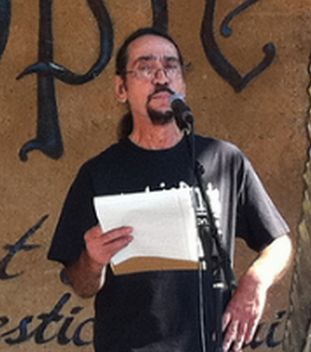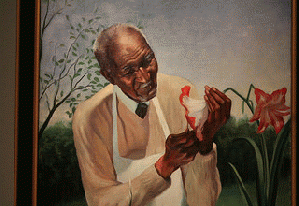Reprinted from Black Agenda Report
After decades of misleader-induced lethargy and quietude, Black America is finally in motion -- or, at the very least, earnestly seeking ways to resist being plunged deeper into the abyss. The nascent "movement" is more like a pregnancy than a full-term child, and thus does not yet have a name beyond the focal point of "Ferguson." Yet, it is kicking its way into the world robustly -- even seismically -- registering nearly two hundred demonstrations in the week following the non-indictment of killer cop Darren Wilson. This baby is reaching self-awareness in the womb of struggle, and will emerge screaming its own name at the top of its lungs.
Unlike its older siblings, Civil Rights and Black Power, this movement-in-the-making has no choice but to challenge the very legitimacy of the State and its armed organs of coercion and control: the police and, inevitably, the entire intelligence and national security apparatus of the ruling regime. Poor baby, but such is her fate.
A half century ago, when Civil Rights triumphed over official apartheid and Black Power strutted proudly across the landscape, a national white consensus quickly congealed around a project to contain the "Second Emancipation": Mass Black Incarceration. The project began in high counter-insurgency drama with the launching of the first SWAT attack on the Black Panther Party headquarters in Los Angeles, in 1969.
The initial blueprint and funding for the vast expansion and militarization of local police was established through the Law Enforcement Assistance Administration (LEAA), a product of the Omnibus Crime Control and Safe Streets Act of 1968 signed into law by President Lyndon Johnson, the great "friend" of Black and poor people (and Vietnamese).
The FBI's COINTELPRO spooks, provocateurs and assassins shredded the ranks of Black radical leadership, killing scores and burying many more in their dungeons, while President Richard Nixon's War on Drugs created the legal and physical infrastructure to put the Black America poor on permanent, nationwide lockdown. By 1970, Mass Black Incarceration had become a foundational organizing principle of U.S. domestic policy. Over the next four decades, the total prison and jail population would increase more than seven-fold, with Black and brown inmates becoming, for the first time, the overwhelming majority of inmates.
"By 1970, Mass Black Incarceration had become a foundational organizing principle of U.S. domestic policy."The Black Mass Incarceration State -- or, as Michelle Alexander calls it, the New Jim Crow --penetrates and defiles every aspect of Black life. It killed Michael Brown and Trayvon Martin and Sean Bell and Oscar Grant and many thousands of other martyrs to police terror, stigmatized a whole race of survivors, and warped intra-Black social relationships beyond measure.
Yet, even as two generations of Blacks were systematically dehumanized by a Mass Black Incarceration State that operated in near-identical fashion across the width and breadth of the country, the Black political class deepened its collaboration and identification with the ruling regime, reveling in their imagined and actual proximity and usefulness to Power. Black mayors and city councils functioned as cogs in the wheels of the people-crushing machine, dutifully sending millions of fellow African Americans into prisons and cemeteries, and then partying every September at the Congressional Black Caucus gala dinner, in Washington. Some of us at BAR call them the Black Misleadership Class, but that is far too kind.
In June of this year, the Congressional Black Caucus showed definitively that the bulk of the CBC are operatives of militarized racist oppression -- that is, of the Mass Black Incarceration State. Eighty percent of the 40 full-voting members either opposed (27) or abstained from voting (5) for a bill that would have prohibited Pentagon transfers of weapons and gear to local and state police departments. These Black lawmakers paid for the army of occupation that patrols the streets of Ferguson and every other heavily Black city, and are fully culpable for the results. (See "The Treasonous 32: Four-Fifths of Black Caucus Help Cops Murder Their Constituents," BAR Sept 10.)
Therefore, whatever this new Movement is to be called, it must find itself in opposition to the Black Misleadership Class and its constellations of collaborators in mass Black oppression, including -- no, especially -- the high profile Quislings of the Congressional Black Caucus.
The Nature of the StruggleThe movement that is now being born is unlike the Civil Rights struggle, which was, of necessity, a fight for full Black protection under the umbrella of bourgeois liberties afforded or implied by the U.S. Constitution. The Black Mass Incarceration State was created as a direct response to the success of the Civil Rights Movement. This "New Jim Crow" proved fantastically effective in containing the self-determinist imperatives of the Civil Rights Movement's short-lived successor, Black Power, snuffing out its more radical political elements while diverting the energies of the newly upward mobile Black classes into collaboration with the supposedly "enlightened" corporate regime.
The post-Sixties Mass Black Incarceration order became steadily harsher with U.S. capitalism's rejection of the social contract with labor, finance capital's rise to political hegemony, and the quickening cascade of global capitalist crises. After 1980, the pace of general Black economic and social progress slowed to a crawl or, in some indices, halted entirely, soon accompanied by a renewed War on Drugs (crack) and another round of draconian penal legislation and prison building.
This slide into hell for the masses of Black folks had no effect on the political behavior of the Black Misleadership Class, which continued to revel in its Oprahs, the growing ranks of Black generals and corporate executives, and every trophy awarded to Black movie stars. In 1986, half the Congressional Black Caucus voted for 100-to-1 penalties for crack cocaine versus the powdered kind. It was no great leap at all when, 28 years later, four out of five CBC members voted to continue arming local cops as if they were Marines preparing to assault Fallujah.
"There will be an entrenched, organized class of Black people deeply connected to Power who will attempt to thwart and betray the movement at every critical juncture."Given that the "traditional" civil rights organizations have always acted in close concert with their state and national legislative Black caucuses, the CBC's behavior is a good measure of the political stance of the larger Black Misleadership Class in relation to the rest of Black America.
The lesson of history is clear: the selfish, grasping classes that were propelled into leadership of Black America by the opportunities opened to them by the mass-based Civil Rights Movement, and whose hold on leadership was further strengthened by the State's decimation of Black radicals and the diversion (and perversion) of popular Black Power sentiments into Democratic Party politics, will not play any positive role in the new movement directed against the State's police. This, alone, sets the nascent movement apart from its predecessors, in that there will be an entrenched, organized class of Black people deeply connected to Power who will attempt to thwart and betray the movement at every critical juncture.
An Anti-Police MovementMost importantly, this movement is fundamentally different than the Civil Rights struggle because it is directed against the police, the embodiment of the State's monopoly on the use of force. Inevitably, it challenges the legitimacy of the American State -- the same government that is currently led by a Black man and which has overseen the militarization of police and the relentless enhancement of the Black Mass Incarceration State for nearly a half-century.
(Note: You can view every article as one long page if you sign up as an Advocate Member, or higher).






